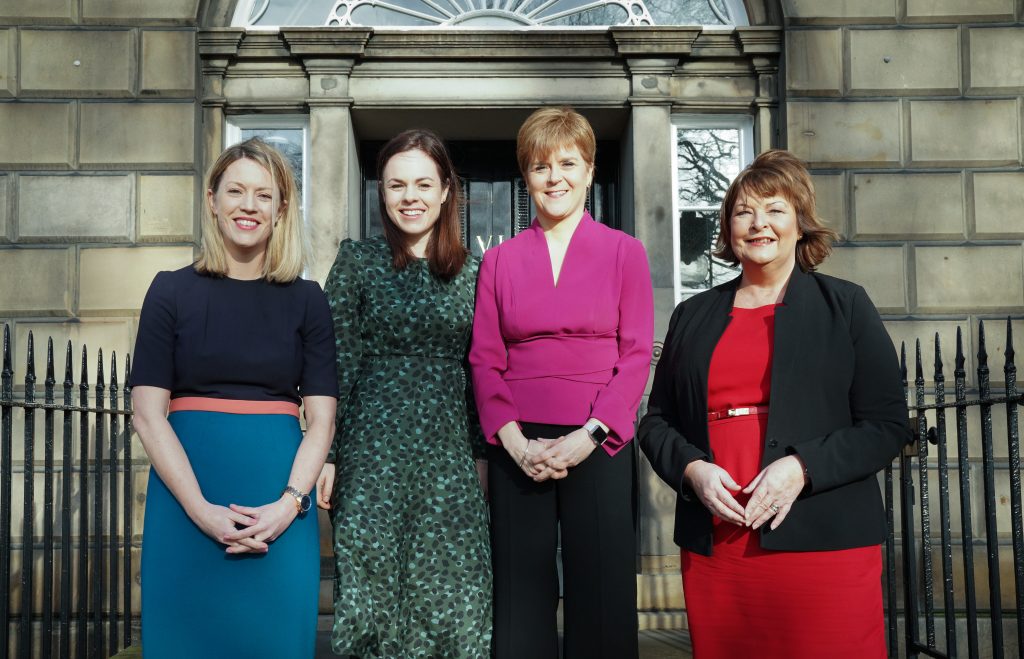Fatima Joji is an Aberdeenshire councillor and is on the NEC of Women for Independence. She has a background in journalism.
Departure from Politics Threatens Scottish Democracy In the lead-up to the 2026 Holyrood election, a concerning number of women have announced their intention to step down from politics. While this trend presents an obvious threat to gender balance in our democratic institutions, it also exposes deeper systemic issues. Many of the reasons cited by these women – if properly addressed – could have prevented such departures.
Their testimonies reveal a political culture that is not only unwelcoming but, in some cases, actively hostile towards women.
A Guardian article published on 23 March 2025, authored by Libby Brooks and Severin Carrell, described Holyrood as becoming a “hostile environment for women.” Several women MSPs were quoted, including one who stated bluntly that “politics is generally misogynist,” while others pointed out that the challenge is “not just about barriers to entry, but staying in politics.” Disturbingly, many also said they had received little to no support. These are not new or unknown issues – nor are the solutions impossible. What is required is the political will to act.
The Equalities Organisiation Engender, which has spent over 30 years campaigning for gender equality in Scotland, recently published comprehensive research on women’s representation and experiences in politics Their findings, drawn from research conducted between July and November 2024, are stark: “Women, particularly Black, minority ethnic and disabled women, face multiple compounding and entrenched barriers at each stage of the candidate journey, across all parties.” Furthermore, the report highlighted that:
“Everyday sexism, including inappropriate comments and gendered stereotypes, remains commonplace across parties, with 24% of selected candidates experiencing sexist language or bullying.”
This reveals not just isolated incidents but a “brewing crisis” in women’s safety and wellbeing in politics – one that is contributing directly to a growing retention issue. Organisations such as Elect Her and Engender have long campaigned on the urgent need to address the exodus of women from political life. Their argument is simple but critical: when women are absent from decision-making spaces, the quality and inclusivity of public policy suffers.
We spend considerable time crafting policies meant to serve all of society, but that aim cannot be fulfilled without representative voices at every level of government. A truly representative democracy is essential to enriching public discourse and policymaking. Women bring a broad and necessary range of lived experiences, whether related to education, healthcare, the economy, childcare, or human rights. Their political participation is not confined to so-called ‘women’s issues’ – it extends across all facets of society. When women are underrepresented, policies are more likely to be unfit for purpose, even in everyday environments such as the workplace. Urgent action is needed to ensure that new female voices are not only welcomed into politics but actively supported. Engender has proposed several actionable recommendations that political parties and governing bodies should adopt. These include:
Providing party support for reporting online abuse, whether to social media platforms or the police.
Establishing online screening teams to manage abusive communications and support candidates at high risk.
Signposting women candidates to independent support organisations such as Elect Her.
Creating and enforcing clear internal policies on bullying and harassment, ensuring all members are aware of reporting procedures.
Demonstrating leadership by championing reforms that enhance participation, safety, and equality for women and marginalised groups.
Enacting Section 106 of the Equality Act 2010 to compel political parties to publish candidate diversity data.
Establishing an independent, cross-party commission to address systemic barriers, safety concerns, and support for underrepresented groups in politics.
While organisations like Elect Her and 50:50 Parliament play a critical role in equipping and encouraging women to stand for election, political parties must take primary responsibility for ensuring women candidates are selected, supported, and retained.
Yes, politics can be a cut-throat business. But the gendered abuse, double standards, sexism, and harassment that women routinely face place them at a severe disadvantage in navigating the political arena. While the current Holyrood Parliament has achieved 45% female representation, this progress is at risk of being reversed if systemic failures are not urgently addressed. Some political parties do have measures in place, but they must be implemented with conviction and accountability. Only then can we build a political environment where women are not only welcomed but can thrive.
Image Credit: Scottish Government, CC BY 2.0 https://creativecommons.org/licenses/by/2.0, via Wikimedia Commons

